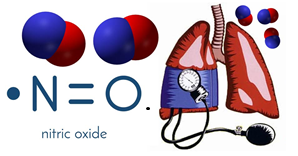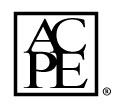
Inhaled vasodilators have been hypothesized to provide benefit in the setting of pulmonary embolism via their ability to modulate the production of cyclic guanosine monophosphate leading to decreased pulmonary arterial pressure. Studies have shown that inhaled nitric oxide may be beneficial in providing afterload reduction to the right ventricle in patients with acute pulmonary embolism; however, there are no recommendations for its use in current practice guidelines. Join Dr. Cody Craven in reviewing the existing literature surrounding this topic and learn new guidance on the potential use of inhaled nitric oxide for patients with acute pulmonary embolism.
Fee
$8.00
CE Hours
0.75
Activity Type
- Knowledge
Target Audience(s)
- Pharmacists
Accreditation(s)

|
St. Louis College of Pharmacy at the University of Health Sciences and Pharmacy in St. Louis is accredited by the Accreditation Council for Pharmacy Education as a provider of continuing pharmacy education. To learn more about the specific program information, including universal activity numbers (UAN's) and learning objectives, please expand the modules below. Following successful completion of an evaluation, CE credit will be automatically reported to NABP through the CPE Monitor system, using the NABP ePID numbers and date of birth (MMDD) stored in participants' user profiles. Follow this link to learn more about CPE Monitor and the credit reporting process » Participants are responsible for ensuring receipt of credit; no credit can be corrected or awarded if more than 60 days have passed from the date of the event or if the home study is expired.
It is the policy of St. Louis College of Pharmacy at the University of Health Sciences and Pharmacy in St. Louis, to ensure balance, independence, objectivity and scientific rigor in all its educational programs. All faculty participating in this program are expected to disclose to the program audience any real or apparent conflicts of interest related to the content of the presentation.
|
Requirements for CE Credit
To claim credit for these sessions, participants must complete the following for each session (with a unique UAN):
- Visit this site. Make sure you are logged in and registered before proceeding.
- Complete an evaluation by clicking the green evaluation button for each session/block.
- Enter the evaluation code that was given to you at the end of the session you attended.
- Answer all questions honestly - we appreciate your feedback! All responses are stored anonymously.
- Click submit. As soon as you submit, a report containing the NABP ePID and DOB stored in your profile will be automatically sent to CPE Monitor.
- Please allow up to 48 hours for processing. Your credit should appear in your NABP profile online.
If you experience difficulty, please contact our office so that we may assist you. We are happy to help!
For simultaneous sessions, participants should claim credit ONLY for those sessions they attended and ignore those they did not attend. Attendance will be reconciled against sign-in sheets. Those sessions not attended will be removed from the participants' profiles after the conclusion of the conference. Participants are responsible for ensuring accuracy of credit reporting and receipt of credit. It is recommended that participants log on and reivew the information under "my account" prior to submitting the evaluation. NABP ePID and date of birth must be accurate for credit reporting to occur. Evaluations cannot be reopened after 14 days.
Participants are encouraged to check their NABP eProfiles for receipt of credit within one week of submitting their evaluation(s). If a participant notices an error in credit on their NABP e-profile, they are encouraged to contact our office as soon as possible. To best comply with ACPE's CE credit reporting policy, St. Louis College of Pharmacy at UHSP is unable, for any reason, to award or correct CE credit if more than 60 days have passed from the event.
Learn more! Click the + symbol to expand.
Acute pulmonary embolism (PE) is characterized by direct thrombotic occlusion of the pulmonary vasculature. However, the associated mortality risk is driven by an increase in pulmonary vascular resistance and afterload resulting in decompensated right ventricular failure. Right ventricular dysfunction also contributes to ventilation-perfusion abnormalities that further exacerbate dyspnea and hypoxemia. Inhaled vasodilators have been hypothesized to provide benefit in the setting of PE via their ability to modulate the production of cyclic guanosine monophosphate leading to decreased pulmonary arterial pressure. Nitric oxide, in particular, is an intriguing agent given the relative deficiency of nitric oxide in patients with PE. In this seminar, we will discuss the current perspective on the use of inhaled nitric oxide in patients with PE as well as the clinical challenges that may arise with its use. Finally, the available literature will be critiqued and recommendations for use provided.
Objectives
- Describe the underlying pathophysiologic mechanisms of acute pulmonary embolism.
- Identify the mechanism of action of inhaled nitric oxide in reducing pulmonary vascular resistance.
- Explain the potential role of inhaled nitric oxide in patients with acute pulmonary embolism.
Speaker(s)/Author(s)
|
Dr. Cody Craven |
Activity Number
0033-0000-21-003-H01-P
Release Date:
Feb 12, 2021
Credit Expiration Date:
Feb 12, 2024
CE Hours
0.75
Fee
$8.00
